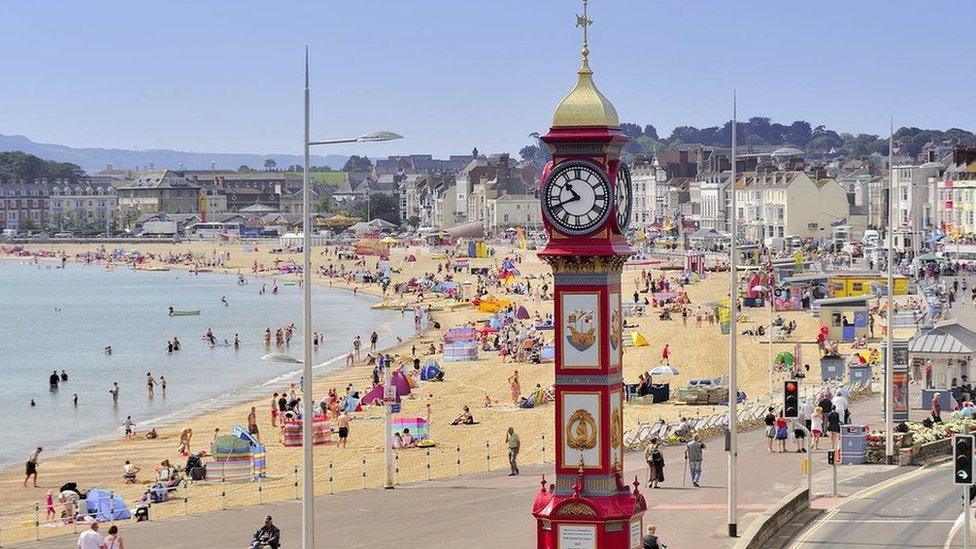Weymouth: Residents protest against high parking charges
- Published

The petition has asked Dorset Council to reverse the changes with "immediate effect"
Thousands of residents have signed a petition against high parking charges which they say are ruining a coastal economy.
More than 5,700 people in Weymouth have voiced their concerns with one business owner arguing visitors need a "pot of gold" to pay for parking.
In peak-season it now costs £4.50 for two hours in many of the town's car parks.
Dorset Council said tariffs had only been raised in "busy tourist areas".
Day-long charges now stand at £15 for town centre parking, with increased seasonal parking tariffs at the Pavilion, Swannery, Melcombe Regis, Park Street, Lodmoor and Beach car parks since 28 April.
Businessman Nigel Sims-Duff addressed a council cabinet meeting on Tuesday on behalf of local businesses and residents, who he said do not have a "magical pot of gold".
He argued that while the council has claimed to minimise cost increases on Dorset residents and businesses they had "unashamedly maximised them on Weymouth residents, businesses and other beach towns.
"Car park charges are like a tax on parking and like any tax, if it's too high, revenues will actually decrease as people try to avoid paying it."

Nigel Sims-Duff said he believed Weymouth was subsidising cheaper parking elsewhere in Dorset
Highway Portfolio holder Ray Bryan defended the increased charge and said that Mr Sims-Duff is the only Weymouth business that has formally complained.
"It's important to understand that we have to look at where our best avenue of income comes from and adapt accordingly," he said.
Weymouth councillor David Gray said that although he supported the three-tier approach to parking fees he believed the £15 fee was "a step too far" and well beyond inflation levels.
Mr Gray also questioned the accuracy of the council data as, to his knowledge, six Weymouth car parks had machines which were not working last year.
The council's scrutiny committees will be looking at the car parking fee setting process in the coming days.

Follow BBC South on Facebook, external, Twitter, external, or Instagram, external. Send your story ideas to south.newsonline@bbc.co.uk, external.
- Published13 July 2023
